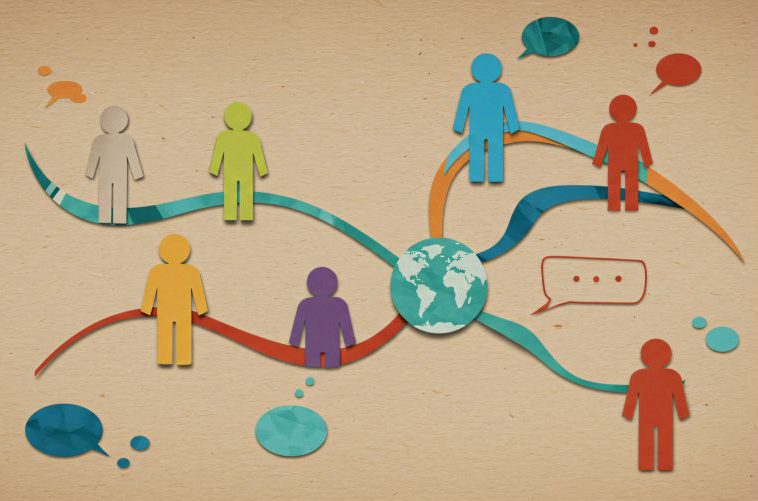
What to Do After High School? It’s Okay Not to Know!
Posted May 5, 2022, 10:00 am by
The Beauty of Not Knowing What To Do After High School
If you feel like there is ever-increasing pressure on high school students to know what to do after high school, you’re right. Society at large makes it seem like students should know exactly what they want to be when they grow up and exactly where they’re headed next.
The truth is, it’s actually pretty difficult for most teenagers to commit to a course of study and a career in a way that is not narrow-minded or short-sighted. At Signet Education, we’ve seen this borne out time and time again in our work with thousands of college-bound students.
Despite what the rumors of the high school whirlpool may indicate, it is quite difficult for many—if not most—students to decide what they want to study when they enter college.
Making choices too early often puts students on a track that doesn’t suit them well, and may lead to switching majors or even switching careers later on (not that this is necessarily bad either, but it can require additional time and effort to get back on track).

Challenges to Choosing a College Major
There are a few key reasons that choosing what to study is a challenge for high schoolers. Here's three reasons why deciding what to do after high school is so difficult:
1. Students have Limited Exposure to Information and Possibilities in High School
Part of the challenge is simply the number of years students have been on this planet (not that many in the grand scheme of things). For most children and even teens, learning is mediated by a small number of people, primarily their parents and teachers. They are not exposed to a broad range of viewpoints, and specific experiences may color their opinions significantly.
For example, a student who loves their economics teacher might consider studying economics in college, while a student who doesn’t get along with their teacher might not consider economics at all. This may have very little to do with economics as a subject and more to do with the personal relationship to the teacher.
2. Students Jump the Gun on Connecting their Major to a Career Path
Just as students have limited exposure to possible avenues of study before entering college, most students also have a wildly deficient understanding of careers. Most students can’t begin to conceive of the career possibilities that are actually available, and can’t make the more indirect connections between a course of study and a possible career.
The path between a student’s major and their career is often circuitous, and students trying to make that path into a straight line may be looking at the world with a perspective that’s narrow and limiting.

3. Students are Still learning What’s Meaningful to Them
Students are maturing in high school, and are certainly beginning to understand, embrace, and wrestle with the complexity of who they are, which is a lifelong process. However, most students still haven’t had enough opportunities and experiences to understand what really drives them and makes them happy. Likewise, students are still developing and exploring what skills they have to bring to the world.
What to Do After High School? Stay Open to Exploration
Given these factors, it’s the exception rather than the rule for a student to make a well-informed choice about committing themselves to a course of study and a particular career. For those students who are clear, identifying a field of interest early on allows them to build a solid foundation, and even to choose a college with a specific offering that addresses what they want to study. But again, these students are few and far between. It is equally wonderful for students to enter college uncommitted to what they want to be when they grow up.
The act of figuring out what one wants to do is a true exploration. Students should first and foremost stay open and explore the many available options, letting themselves be guided by their interests. When something clicks, they can start to explore it more deeply. If something isn’t the right fit, they can reflect and use that information to continually inform their exploration.

This process of reflection and revision will allow students to thoughtfully construct a path that determines not only a college major and career, but becomes part of the process of building a meaningful life. (As a side note, this is part of why we advocate a similar process for choosing and engaging in extracurricular activities; in fact, extracurriculars can help inform college and professional choices.)
Staying open is much easier said than done. On a practical level, the burden of paying for college and/or student loans is a heavy one, and students may feel pressure to choose a course of study that guarantees a measure of financial stability. Students and parents will need to work together to make choices that are appropriate for the family as a whole, particularly when it comes to finances. For example, a school with lower tuition might offer a student a greater degree of freedom and exploration than a more expensive college, where the pressure to pay back loans will be high.
The vulnerability of letting the future remain uncertain can invite choosing a path that feels safe or familiar, without truly examining whether that choice feels fulfilling. But we encourage students to step away from false certainty, relieve themselves of undue pressure, and lean into the process of exploring majors and careers as a vehicle for building meaning in their lives.

College Majors Do Matter
I’m not suggesting that students blindly follow their dreams when making this important decision, or drift aimlessly through their college years! We recommend that all students think strategically about their obligations as well as their aspirations. But most students don’t yet know what will build meaning for them.
Identifying and constructing those things is an important part of the post-high-school experience. This process is messy and uncertain, but it is also an incredibly valuable way for students to learn that they are responsible for shaping the course of their own life.
Above all, we recommend engaging with the idea that what students study and what they do can make a contribution to the world at large. The beauty of not knowing what you want to do is that you’re open to discovering what it is you were meant to do.
"This process is messy and uncertain, but it is also an incredibly valuable way for students to learn that they are responsible for shaping the course of their own life."
If your student is struggling with what they want to study in college, an outside expert can help bring clarity to the situation. Connect with us to speak with one of our admissions consultants at Signet Education.
Blog Categories
- Career Advice
- College Admissions
- Colleges & Universities
- Financial Aid and Scholarships
- For Counselors
- For Parents
- For Students
- Gap Years
- Mental Health and Wellness
- Online Learning
- Performing and Visual Arts
- STEM Majors and More
- Summer Programs
- Teen Volunteering
- Trade & Vocational Schools
- Tutoring & Test Prep

Organization with listings on TeenLife? Login here
Register for Free
We’re here to help you find your best-fit teen-centered academic and enrichment opportunities.
Forgot Password
"*" indicates required fields








